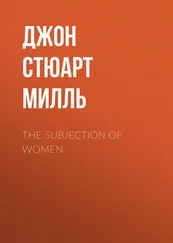Maybe she shouldn’t tell her.
The taxi brought Tiao to the Happy Millions Supermarket. She bought food enough for a week and then took the taxi home.
The heat in her apartment wasn’t on, so the rooms felt shadowy and cold. It was different from a winter chill, none of that dense stiffness filling the space; it was uncertain, bearing faint traces of loneliness. On such an evening of such a season, Tiao liked to turn on all the lights, first the hallway, then the kitchen, the study, the living room, the bedroom, and the bathroom, all the lights, ceiling light, wall light, desk light, floor light, mirror light, and bedside light … her hands took turns clicking the switches; only the owner of the place could be so practiced and precise. Tiao was the master of the house, and she greeted her apartment by turning the lights on. She lit her home with all these lights, but it seemed as if the lights lit themselves to welcome Tiao back. So lights illuminated every piece of furniture, and every bit of dim haziness in the shadows contributed to her sense of security and substance. She walked through every room this way until she finally came to a small corner: to that blue-grey satin brocade armchair, which seemed to be her favourite corner when she was not sleeping. Every time she came home, returning from work or a business trip, she would sit in this small armchair, staring blankly for a while, drinking a cup of hot water, and refreshing herself until both her body and mind felt rested and relaxed. She never sat on the sofa. Even when Chen Zai held her in his arms and asked to move onto the more comfortable sofa, she remained uncooperative. Then, in a desperate moment, finally feeling she couldn’t refuse anymore, she simply said, “Let’s go to bed.”
For Chen Zai, that was an unforgettable sentence because they had never gone to bed before, even though they had known each other for decades. Later, when they sometimes teased back and forth about who seduced whom first, Chen Zai would quote this sentence of Tiao’s, “Let’s go to bed.” It was so straightforward and innocent and it caught him so off guard that he almost missed the erotic implications. It made Chen Zai think again and again that this lithe woman he held in his arms was his true love, and always had been. It was also because of this sentence that they didn’t do anything that first night.
Chen Zai was not home tonight. He had gone to the south on a business trip. Tiao ate dinner, sat back in the armchair, and read a manuscript for a while. Then she took a shower and got into bed. She preferred to slip into her quilt nest early; she preferred to wait for Chen Zai’s phone call in there. She especially liked the words “slip into her quilt nest,” a little unsophisticated — poor and unworldly-sounding. She just liked the words “slip,” “quilt,” “nest.” She never got used to hotels and the way foreigners slept — the blanket tucked in at the foot of the bed, stretched tight over the mattress. Once you stuck your legs and feet into the blanket, you felt disconnected, with nothing to touch. She also didn’t like quilts made of down, or artificial cotton. The way they floated lightly over your body made you more restless. She always used quilts made of real cotton; she liked everything about a quilt nest folded with a cotton quilt, the tender, swaddled feeling of the light weight distributed over her whole body, the different temperatures that hid in the little creases of the quilt nest. When she couldn’t sleep because of the heat, she would use her feet to look for the cool spots in the soft creases under the quilt. When she needed to curl up, the quilt nest would come along with her, clinging to her body. So unlike those bedclothes pinned down by the mattress, where you wouldn’t dream of moving, but would have to yield to the tyranny, forced into an approved sleeping posture — by what right? Tiao thought. Every time she went on a business trip or travelled abroad, she would intentionally mess up those blankets. Cotton quilts always made Tiao sleep well. But unpleasant thoughts pressed in on her after she woke up in the middle of the night. When she turned on the table lamp, tottered to the bathroom to pee, and returned, when she lay back in her bed and turned off the light, at that moment she would feel the intense loneliness and boredom. She began to think about things in a confused way, and the things that people tend to think, awakening after midnight, are often unpleasant. How she hated waking up in the middle of the night! Only after she truly had Chen Zai did she lose the fear. Then she was no longer by herself.
She curled up in her quilt nest and waited for Chen Zai’s phone call. He kissed her through the phone and they talked for a long time. When Tiao hung up, she found herself still not wanting to sleep. This evening, a night when Chen Zai was far away from Fuan, she had an overwhelming desire to read the love letters locked in her bookcase. They were not from Chen Zai, and she no longer loved the man who had written her the love letters. Her desire now was not to reminisce, or to take stock. Maybe she just cherished the handwriting on the paper. Nowadays, few people would put pen to paper, especially not to write love letters.
2
There were sixty-eight letters altogether, and Tiao numbered every one of them in chronological order. She opened number one, a white paper whose edges had yellowed: “Comrade Yin Xiaotiao, the unexpected meeting with you in Beijing left a deep impression on me. I have a feeling that we will definitely see each other again. I’m writing to you on an aeroplane. I will arrive in Shanghai today and will leave for San Francisco tomorrow. I’ll seriously consider your suggestion about writing a childhood memoir — only because it was a request of yours.” The letter was signed by Fang Jing, the date was March 1982.
It was more like a note than a letter. The words, scrawled on an oversized piece of paper, seemed big and sparse. The words looked like they were staring stupidly at the reader. Strictly speaking, it was not a love letter, but the thrill that it brought to Tiao’s soul was much stronger than what those real love letters of his gave her later.
The letter’s author, Fang Jing, had been very hot in the movie business at the time. He’d written, directed, and acted in a movie called A Beautiful Life. After an endless run in theatres around the country, the movie also won a few major awards. It was a movie about middle-aged intellectuals who’d suffered horrendously during the Cultural Revolution but still managed to survive, optimism intact. Fang Jing played an intellectual imprisoned in a labour camp on the border. He was a violinist whose imprisonment gave him no chance to play the violin. There was an episode in the movie that showed how, after the hero endures heavy labour with an empty stomach, when he straightens up in the wheat field, catching sight of the beautiful sunset in the distance, he can’t help stretching out his arms. His right arm becomes the violin neck and he presses on it with his left hand, fingers moving around as on the strings of a violin. There was a close-up of this in the movie, the scrawny scarred arm and that strangely transformed hand. The arm as the violin and the hand playing on it broke people’s hearts. Tiao would cry every time she watched this part. She was convinced that Fang Jing wasn’t performing but reliving his own experience. The scene might seem sentimental now, but back then, at a time when people’s hearts had been repressed for so long, it could easily bring an audience to tears.
Tiao never thought she would come to know Fang Jing personally. She had recently graduated from university and, through connections, got a job as an editor in the Fuan Children’s Publishing House. Like all young people who admired celebrities, she and her classmates and colleagues enthusiastically discussed the movie A Beautiful Life, and Fang Jing himself. They read all the profiles of Fang Jing in the newspapers and magazines and traded information with each other: his background, his life experience, his family and hobbies, his current project, what movie he entered in a film festival and what new award he won there, even his height and weight; Tiao knew all the details. It was by chance that Tiao and he got to know each other. She went to Beijing to solicit manuscripts for books and ran into a college roommate. The father of this roommate worked in a filmmakers’ association, so she was very much in the know. The roommate told Tiao that the filmmakers’ association was holding a conference on Fang Jing’s work and that she could get Tiao in.
Читать дальше
Конец ознакомительного отрывка
Купить книгу












